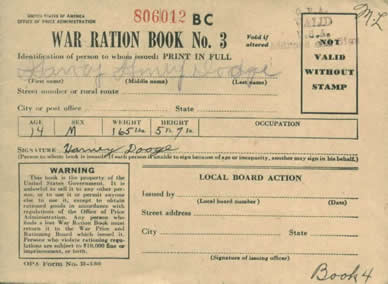 |
| Harvey
Dooge
Interviewed
May 7, 2002
|
Harvey Henry Dooge was born on March 2, 1929 in Hebron, Wisconsin. He moved to Helenville at the age of 10 and was in 8th grade at Helenville Elementary when World War II began. He was at home when the Japanese attacked Pearl Harbor. "We heard it over the radio that Sunday, sometime after noon, our time. There was no television then. I told my children and grandchildren that the World Trade Center news gave me the same sick feeling that I had on that Sunday in 1941." |
 |
Mr. Dooge still has his ration books from when he was 14 years old. He was 5'7" at the time and weighed 165 lbs. The rations that they gave for gas were rather low so you had to carpool if you did not have enough. Harvey went to high school in Whitewater because his brother went to college there. His brother graduated from college in 1945. Harvey's mother feared that his brother would be drafted. "Some student or teacher was always enlisting or being drafted. One woman English teacher left to teach radio at Truax Field in Madison." |
He lived on a farm where there were 25 cows that they milked by hand. They also had some chickens and ducks. The farm was about 80 acres; 30 acres were pasture and 50 acres were tillable. They were not able get new machinery for the farm. The military needed everything. |
Mr. Dooge remembers German Prisoners of War helping out with the pea pack near Helenville. The POWs would gather the peas and put them through a vining machine that would remove the peas from their pods. The leftover vines would then be thrown on the ground. |
Harvey could not speak any German so he could not talk with any of the prisoners. Some of his neighbors in Helenville were of German descent and could converse with the German POWs. The POWs were housed at the county fairgrounds in Jefferson. On weekends, the prisoners of war were allowed to go to the movie theater to see a movie. |
|
|
Students were involved in various projects to help the war effort. Whitewater High School held scrap metal and paper drives. A tragic part of that was that in October of 1942, when school was dismissed for a day for the drive, a student was killed when he fell off a truck. |
There was a group called the Junior Red Cross that made cards for servicemen. They also sent cookies to Truax Field in Madison for the servicemen. |
Students helped issue ration books in the gym. The Future Farmers Association, of which Harvey was a member, spent two days on the muck farms picking up onions and potatoes to get them harvested before it froze. In the fall of 1944, the Future Farmers collected 600 bags of milkweed pods, enough to make 300 life jackets for the Navy. |
"Most factories were doing defense work. Creamery Package Mfg. Co. in Fort Atkinson made periscope parts for submarines. Moe Brothers, which later became Thomas Industries, made brass shell casings. Whitewater had a raincoat factory." |
"Steel was for ships, planes, ammunition, trucks, jeeps, mortars, and whatever. All new motorcycles and cars went to the Armed Forces except for police and fire departments. Many women took over in the factories as the men went into service." |
"Silk stockings because unavailable due to the silk being from Japan and what silk was produced was needed for parachutes for the airmen or for supplies dropped by parachute, paratroopers, etc. Nylon was developed." |
During World War II, there was no television. They listened to shows on the radio. Harvey remembers seeing a movie about the Sullivan brothers from Waterloo, Iowa. Five brothers were all lost at sea when their ship sank during hostile action in the Pacific. He also remembers the movie, "Tarzan." Movies would be on shown on Sunday afternoons at an outdoor theater in Jefferson. They also showed news reels about the war in the movie theater. |
Harvey has a sister whose fiancé had been sent to New Guinea with the 32d Infantry Division. He returned 3 1/2 years later during the summer of 1945. "He had malaria when he came home and lay in bed sweating and shivering at the same time and the bed sheets were all yellow from the sweat. That lasted 3 or 4 years, I think." |
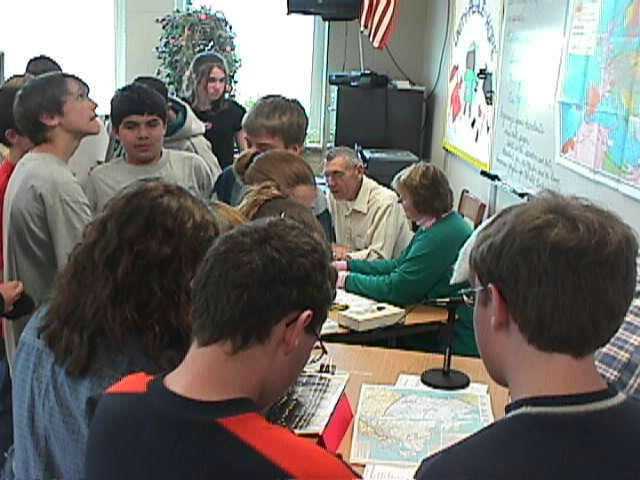 |
Harvey joined the Navy during the Korean Conflict in January of 1952. He was 22 at the time. He already had his draft notice but he decided to enlist into the branch of his choice before his reporting date. He first went to the Great Lakes Naval Station for 13 weeks of training. His rank going into the military was Seaman Recruit. After basic training Mr. Dooge earned two stripes. Mr. Dooge became a Naval fireman. Traditionally a Navy fireman shoveled coal on steamers. Historically, firemen shoveled coal into the furnaces to keep the ship running. He also was trained in machinery repair. |
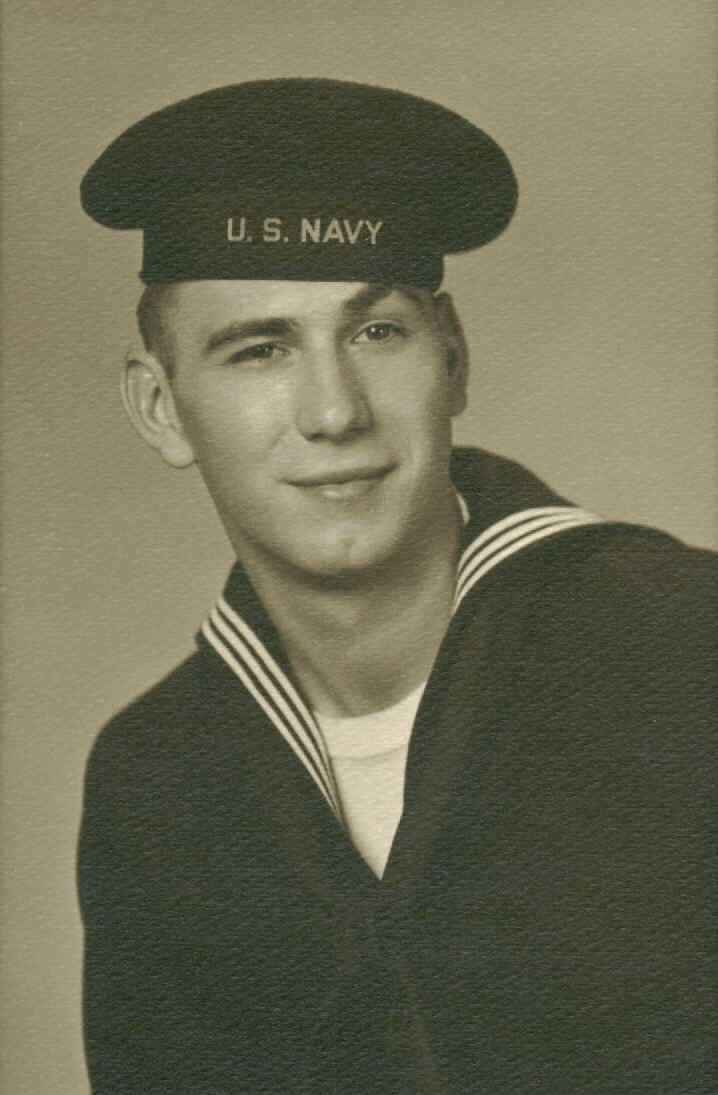 |
|
(lowest rank is at bottom of table) |
|
|
|
|
|
|
|
|
|
|
|
|
|
|
Mr. Dooge served in Korea and in the Aleutian Islands. The ship was anchored at Attu Island, an Alaskan island that saw military conflict during World War II. It was even occupied by the Japanese. After a 19-day battle, the Americans regained control in 1944. Attu is a small island with no trees. Mr. Dooge was there from April until October in 1953. There was lots of snow. While there in 1953, a contingent of Japanese came back to the island to reclaim their dead from World War II that ended in 1945. They came with many white flowers for a special commemoration ceremony. Mr. Dooge could not go to the ceremony with some of his other mates because he had duty that day. |
|
The name of Mr. Dooge’s ship was the USS ABNAKI (ATF-96). The ship, a towing ship, was 203 ft. long and 93 ft. wide. It could get pretty close to shore because of how small it was. Its depth was no deeper 16 ft. below water. The ship could hold up to 20,000 gallons of water and 110,000 gallons of diesel oil. Mr. Dooge's name was found on a ship's roster on the Internet. (look for Dooge, Harvey 52 - 54). Mr. Dooge is a lifetime member of the USS ABNAKI ATF-96 Association. |
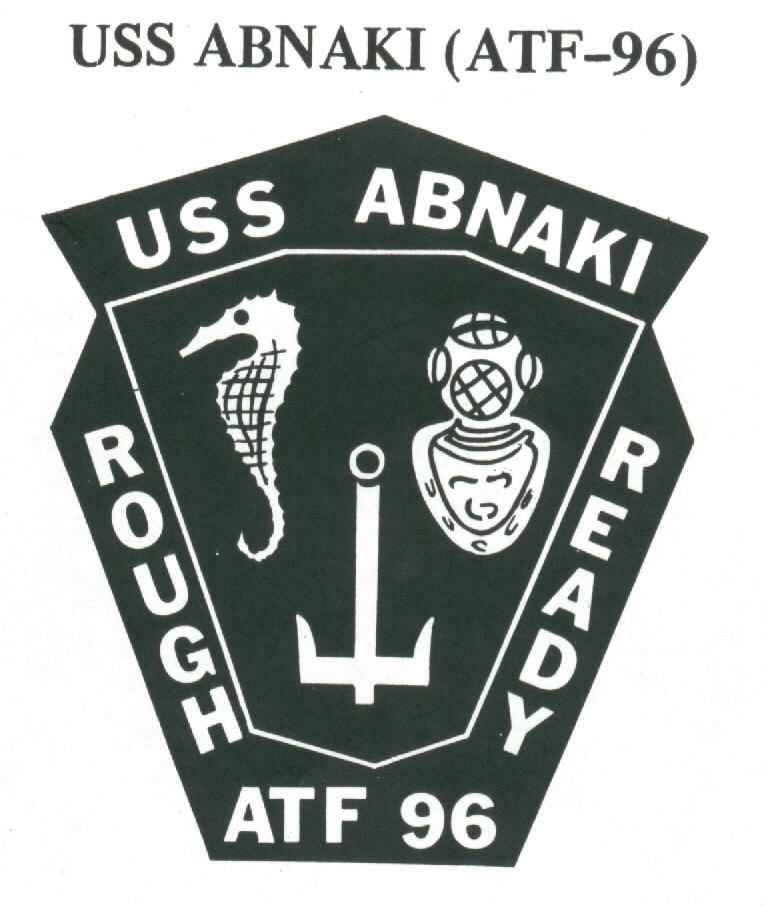 |
USS ABNAKI (ATF - 96) This ship has served in World War II, the Korean Conflict, and the Vietnam conflict. She operated in both the Atlantic and Pacific theaters during World War II. Several tows were completed by her in the Atlantic. She also towed the captured German submarine U-505 during World War II. This is the German submarine that is now in Chicago at the Museum of Science and Industries. Dooge's position on this ship in 1953 was a 3rd class machinery repairman . Later, the USS ABNAKI was sold to Mexico for the Mexican Navy. It now has a different number. |
|
|
|
BATTLE STARS (THREE) NAVY OCCUPATION SERVICE MEDAL (ASIA) CHINA SERVICE MEDAL (EXTENDED) KOREAN PRESIDENTIAL UNIT CITATION BADGE UNITED NATIONS SERVICE MEDAL (KOREA) VIETNAM SERVICE MEDAL (WITH SIX STARS) ARMED FORCES EXPEDITIONARY MEDAL (TWO, VIETNAM) MERITORIOUS UNIT COMMENDATION |
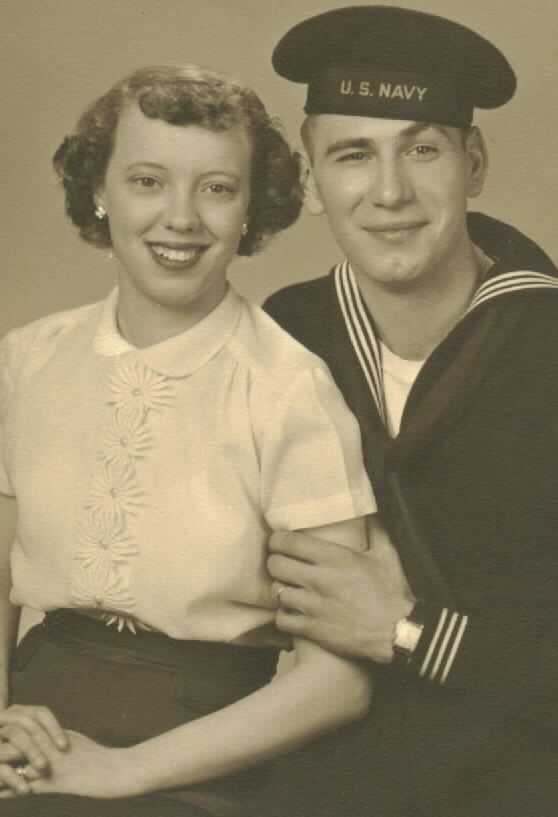 |
Harvey married the former Jean E. Burkert on October 7, 1950. His first daughter, Vicki, was born while he was in Alaska. His daughter was four months old when he first saw her in January of 1954. At right is a picture of Mr. Dooge's sleeve from his uniform. The rest of it was made into a rug by his wife. It has an American eagle and a micrometer. A micrometer is a precise measuring instrument. Harvey and Jean raised four children, two girls and two boys. |
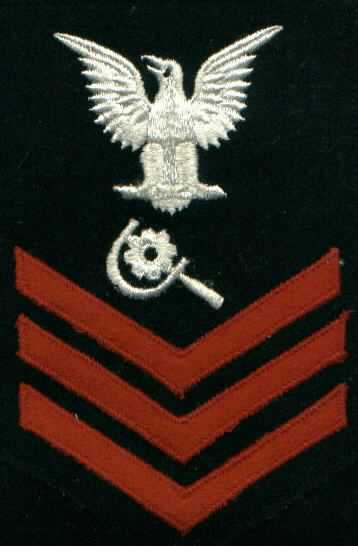 |
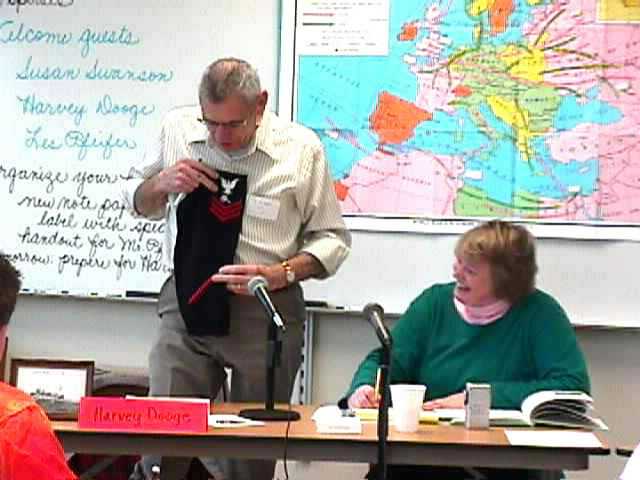 |
Harvey is now 73 years old and lives in Jefferson, Wisconsin. He is currently the commander of the Jefferson VFW ENDL-GRUENNERT POST NO. 3589, the first congressional medal of honor post in Wisconsin. Harvey has two tattoos. One is of a heart with his wife's initials. The other one is a jackass to remind him never to get another tattoo. |
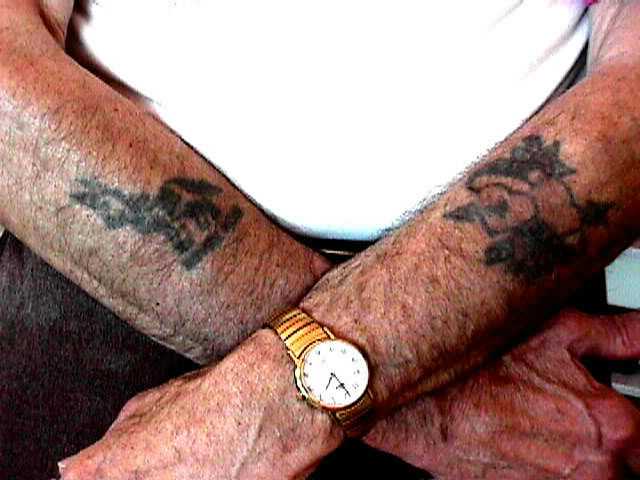 |
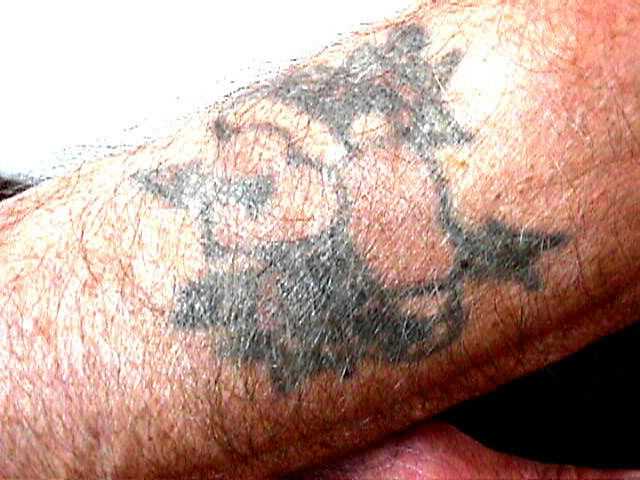 |
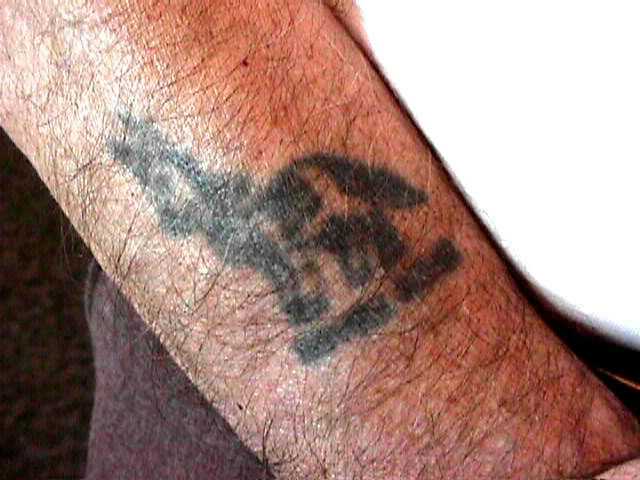 |
|
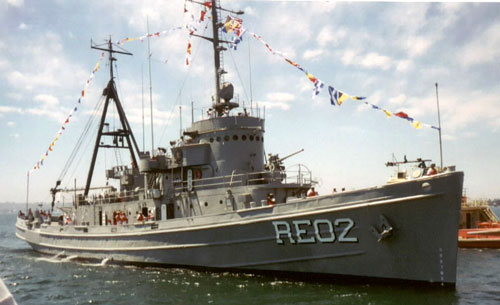 |
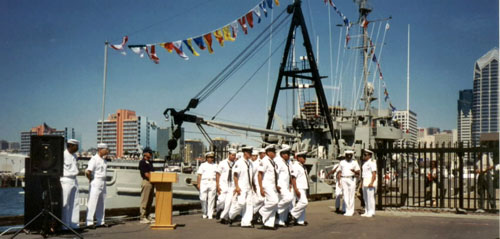 |
|
|
|
|
Janna D. Smith , Copyright May 2002 |
|
updated November 7, 2005 |